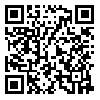Volume 6, Issue 3 (July 2022)
AOH 2022, 6(3): 1256-1264 |
Back to browse issues page
Associate Professor, SPB Physiotherapy College, Veer Narmad South Gujarat University, Surat, India , vivekramanandi@gmail.com
Abstract: (598 Views)
Background: COVID-19 pandemic has significantly affected provision of healthcare services in all the fields including physical therapy. Telerehabilitation refers specifically to clinical rehabilitation services with the focus of evaluation, diagnosis, and treatment. Being a technologically evolving country, physical therapists of India are unfamiliar with the context and concept of telerehabilitation at large. This study intends to explore awareness, attitudes, and beliefs of
Gujarati physical therapists regarding telerehabilitation and utilization of telerehabilitation services among them.
Methods: An Internet based cross-sectional study was conducted on 389 physical therapists across Gujarat. Data were analysed using descriptive statistics of mean, percentages and standard deviation. Results: Participants (n=145 males, n=244 females) were aged 31.66 ± 8.2. 332 (85.4%) of the participants were aware of telerehabilitation. This is while only 116 (29.82%) were using it for service provision. 288 participants (74.03%) reported that the Internet connectivity was a major barrier regarding their acceptance in telerehabilitation on a regular basis. However, about 246 (63.24%) reported that it was difficult for patients to understand and adjust with telerehabilitation services.129 (33.16%) of the physical therapists were not interested in telerehabilitation when compared to conventional physical therapy. Conclusion: A large proportion of Gujarati physical therapists are aware of telerehabilitation services. Positive attitude belief about telerehabilitation services were reported. Due to various reasons, utilization of telerehabilitation based services by physical therapists was fairly low.
Gujarati physical therapists regarding telerehabilitation and utilization of telerehabilitation services among them.
Methods: An Internet based cross-sectional study was conducted on 389 physical therapists across Gujarat. Data were analysed using descriptive statistics of mean, percentages and standard deviation. Results: Participants (n=145 males, n=244 females) were aged 31.66 ± 8.2. 332 (85.4%) of the participants were aware of telerehabilitation. This is while only 116 (29.82%) were using it for service provision. 288 participants (74.03%) reported that the Internet connectivity was a major barrier regarding their acceptance in telerehabilitation on a regular basis. However, about 246 (63.24%) reported that it was difficult for patients to understand and adjust with telerehabilitation services.129 (33.16%) of the physical therapists were not interested in telerehabilitation when compared to conventional physical therapy. Conclusion: A large proportion of Gujarati physical therapists are aware of telerehabilitation services. Positive attitude belief about telerehabilitation services were reported. Due to various reasons, utilization of telerehabilitation based services by physical therapists was fairly low.
Type of Study: Research |
Subject:
Special
Received: 2022/01/3 | Accepted: 2022/08/20 | Published: 2022/09/21
Received: 2022/01/3 | Accepted: 2022/08/20 | Published: 2022/09/21
| Rights and permissions | |
 |
This work is licensed under a Creative Commons Attribution-NonCommercial 4.0 International License. |



